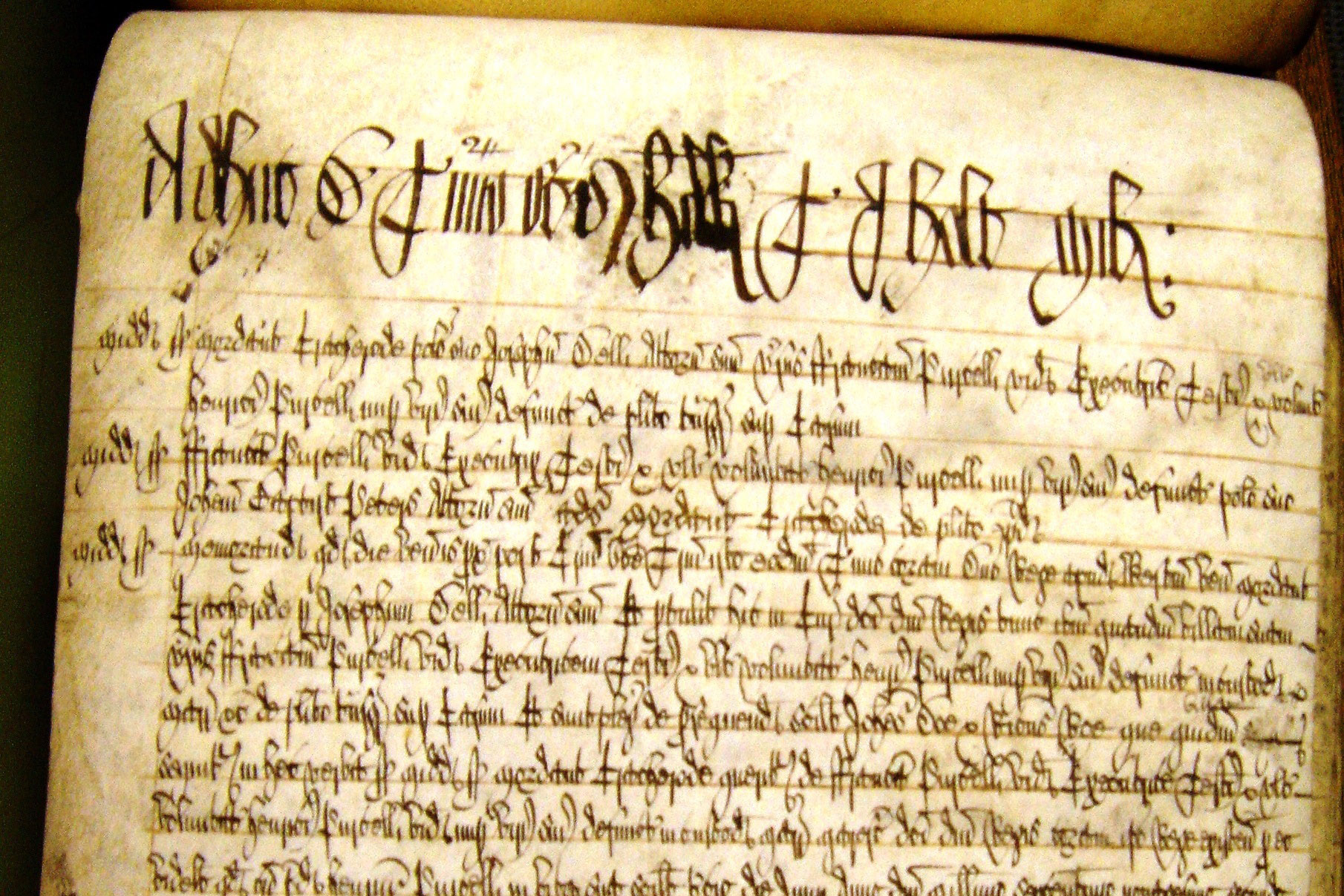Investigating British musical culture in the long 18th century through legal documents
Research by Cheryll Duncan demonstrates the potential of legal archives to historical musicology.
The project is underpinned by a systematic search of English common law and equity court documents c1680–1780, which is yielding a wealth of new information about professional music culture in Britain. These records are challenging to use and have been largely neglected by music historians, so a central objective of the research is to demonstrate why they are worth searching, how to use them and how many jewels of information can be found therein.

TNA KB27/2130 (King’s Bench plea roll involving Henry Purcell’s widow and executrix, 1698)
The documents shed light on an era when professional music making had shifted from royal patronage towards a commodified business model, and there was a proliferation of civil disputes over such matters as pay, contractual arrangements, copyright and debt. The resulting litigation can provide fascinating and unique details concerning the day-to-day lives and concerns of musicians and others associated with the music industry. Outputs to date include studies of composers Henry Purcell and Lewis Granom; opera singers Elizabeth Frederica, Caterina Galli, Gaetano Guadagni, Giuseppe Manfredini, Angelo Monticelli and Ferdinando Tenducci; organ builder Bernard Smith; violinist/composers Francesco Geminiani and Felice Giardini; opera impresario Charles Sackville; and the music seller, publisher and instrument dealer John Cox.
Cheryll’s research has been published in several scholarly journals including Cambridge Opera Journal, Early Music, Journal of the American Musicological Society, Music & Letters and Royal Musical Association Research Chronicle. She contributed to Geminiani Studies, a collection of essays edited by Christopher Hogwood (Ut Orpheus, 2013), and her monograph Felice Giardini and Professional Music Culture in Eighteenth-Century London was published by Routledge in 2020. She is currently writing a short monograph for Cambridge University Press on the eighteenth-century flautist, composer and teacher Lewis Granom, drawing on an equity lawsuit which explains the unusual genesis of his flute treatise (1766). Also in progress are studies of Giovanni Francesco Crosa and opera in London 1748–50, and the early eighteenth-century singer Jane Barbier.

